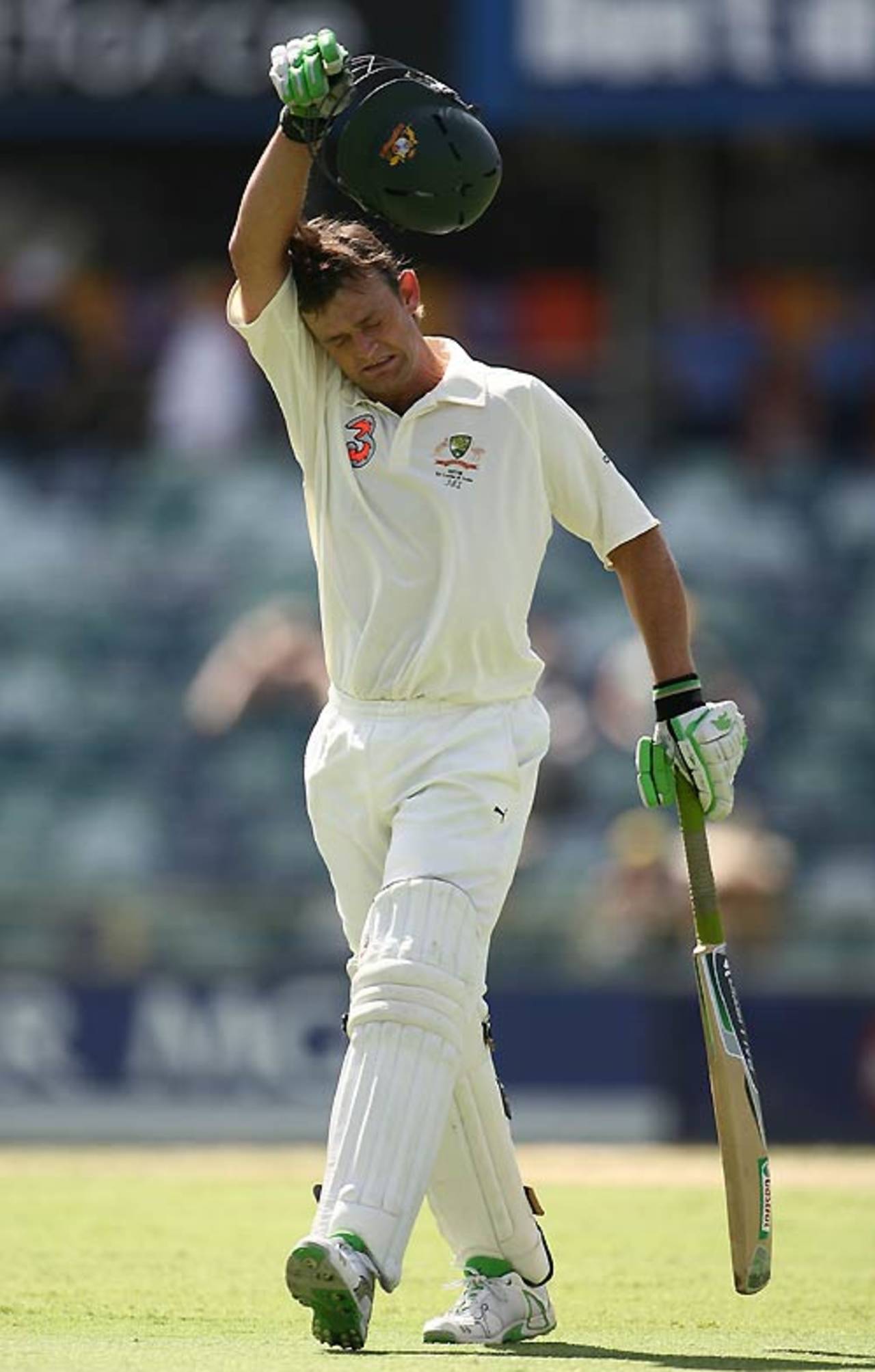Walking? Who would do that? Why would you do that? Batters bat, bowlers bowl and fielders field. Everyone appeals, umpires decide. And if a batter finds an umpire who hasn't seen him hit the ball to first slip, then that is good luck for him and bad luck for the other team, and there is no more to see here, let's move on muttering. There will be times a batsman doesn't hit the ball and is fired out. And if his mates have used up the DRS appeals, he can tell his story walkin'.
That's how the game has been for a thousand years. Apart from the DRS thing. But more on it later.
For now we'll confront this jibber-jabber about Stuart Broad being somehow "dishonourable" or "cheating" because he waited for Aleem Dar to make a decision.
Because, people - please. Broad had the smarts - and if you think about it, other-worldly chutzpah - to stand there and look into Dar's eyes and see that great batsman's Get Out of Jail Free card, "Doubt". And he benefited from it. That's cricket. In Broad's case good cricket, just as was practised by Steve Waugh and Javed Miandad and Geoff Boycott and anyone else who let umpires umpire. Doesn't make them "bad".
Is Adam Gilchrist "good" because he walked? I say: not in my opinion. Yours may differ. Neither of us, like our opinions, are wrong. No - for mine it means Gilchrist decided to take the umpire out of the appeal process and give himself out. Gilchrist probably appealed himself. "How am Iiiiiii? Yes, I'm out. Got me, yesss." And off he'd walk, team-mates publicly applauding, "Good man", privately thinking, "Good one, Richie Cunningham."
Because there you are: in the same team as Honourable Adam were ornery characters like SR Waugh, ME Waugh and RT Ponting, men who thought the "good" or "right" or even "honourable" thing to do was let the umpire decide if he was out or not. And if not, continue batting for Australia. These men received plenty of "incorrect" decisions and believed when they got one their way it was just the universe righting itself. And who were they to argue with a force as powerful as the very universe? Answer: nobody - apart from Adam Gilchrist.
Who is "right"? Nobody. Everybody. It's opinion, it's subjective. Each man's honour code is hardwired in various ways. If Gilchrist is "good" because he walked, then is Brad Haddin "bad" because he did not, despite knowing he'd hit the ball that finished the first Test? Is Steve Waugh bad? Is Stuart Broad? Is there political instability in Burma? Who killed Laura Palmer? How did security guards at ANZ Stadium not see the 120-kilogram bald man taking off his clothes before jumping the fence and running straight into the middle of State of Origin rugby league? We may never know.
I submit that it is not cheating to stand and wait for the umpire's verdict. The rules of the game are umpired by third parties: umpires. That is their only role. Umpire. Adjudicate. Decide. And we all move on.
Which is why the Decision Review System has opened up a whole other barrel of monkeys with machine guns. And it's probably a whole other column. And has been written and argued forcibly either way by Smart Men.
For mine, one thing is certain: players should not be involved in the decision-review process. They use it tactically, selfishly. The state of the game will decide if a batsman or captain reviews a decision - not necessarily whether they believe it's out or not. They just want to find out if it might benefit their team.
People argue for one review rather than two. But that would mean (wouldn't it?) that there's less chance again of video technology taking away the "howler" or "clanger"? Shane Watson would review an lbw first ball he gets. Stay fired out. And there might be a half-dozen clangers until stumps.
And what's the definition of the howler/clanger? A thin inside edge in an lbw? No inside edge in a bat-pad? And is it only a howler if a batsman is given out when he isn't? Or not out when he is? It's very confusing.
How about this: Let the umpires give a man out or otherwise. If he's out it means they have no doubt. You're out of there. And if, while the man is trudging off, the God Umpire in the Sky finds compelling evidence to overrule the on-field umpire, he may do so, and get in his old mate's ear. Similarly if the on-field umpire has given a man not out, and God Umpire can immediately see, through the use of video technology, that the man is out, he may overrule.
Admittedly there may be issues with the speed at which a batsman trudges off or a bowler returns to his mark while God Umpire makes these decisions, but any system has monkeys with machine guns, as we know. Stuart Broad took off his boot to get his team to lunch the other day. Good? Bad? Your call.
Or we could just acknowledge that India - the BCCI - has it right. And we brush the whole concept of DRS, except for run-outs and stumpings, which are hard to see with naked eye. Wouldn't that be novel: Umpires umpiring. Players appealing. And copping it sweet.
Matt Cleary writes for several Australian sports and travel magazines. He tweets here
